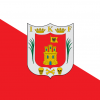Държавите в Африка,Азия и америките
-
Теми
-
Същност или залепен етикет? 1 2 3 4
От Втори след княза, in Нещата в себе си са етап на познание, сега изследваме нещата по отношение друго нещо
- 81 мнения
- 1132 views
-
Руско-украинската война 2022-2024 година. 1 2 3 4 45
От Р. Теодосиев, in Руско-украинската война 2022 година.
- 1112 мнения
- 44459 views
-
- 1 мнение
- 151 views
-
Седемглавият змей във фолклора и християнството, символизъм и произход
От Tomata, in История на религиите
- 11 мнения
- 339 views
-
Как ще се отразят санкциите на Русия и как на останалия свят? 1 2 3 4 57
От Warlord, in Руско-украинската война 2022 година.
- 1402 мнения
- 62061 views
-
-
Последно разглеждащи 0 Потребители
- No registered users viewing this page.




Recommended Posts
Напиши мнение
Може да публикувате сега и да се регистрирате по-късно. Ако вече имате акаунт, влезте от ТУК , за да публикувате.